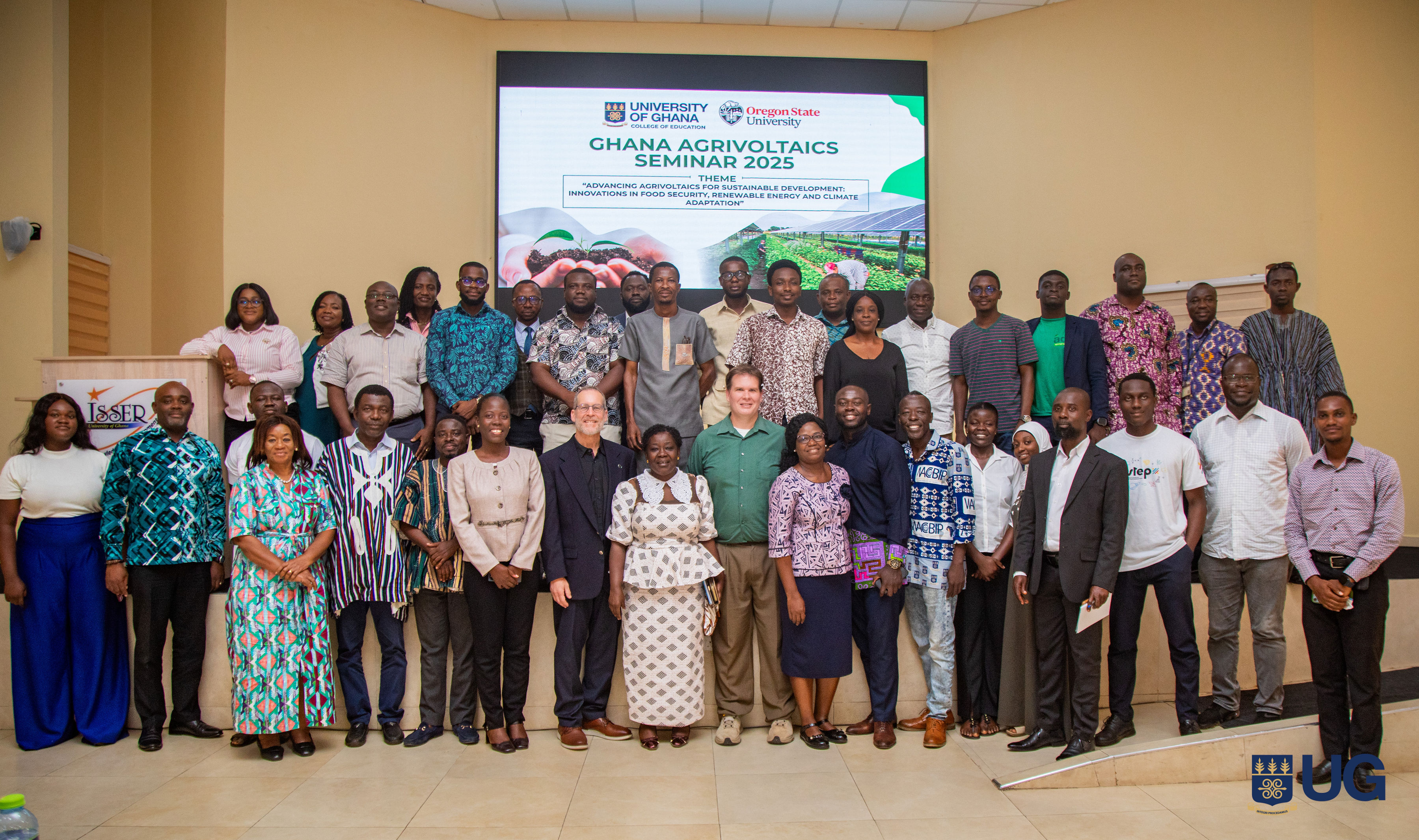In a pioneering effort to address climate resilience, food security and renewable energy through agricultural innovation, the University of Ghana’s College of Education, in partnership with Oregon State University, U.S.A., has hosted Ghana’s first-ever Agrivoltaics seminar. The event convened experts to explore how this emerging technology could offer integrated solutions to some of the country’s most pressing development challenges.
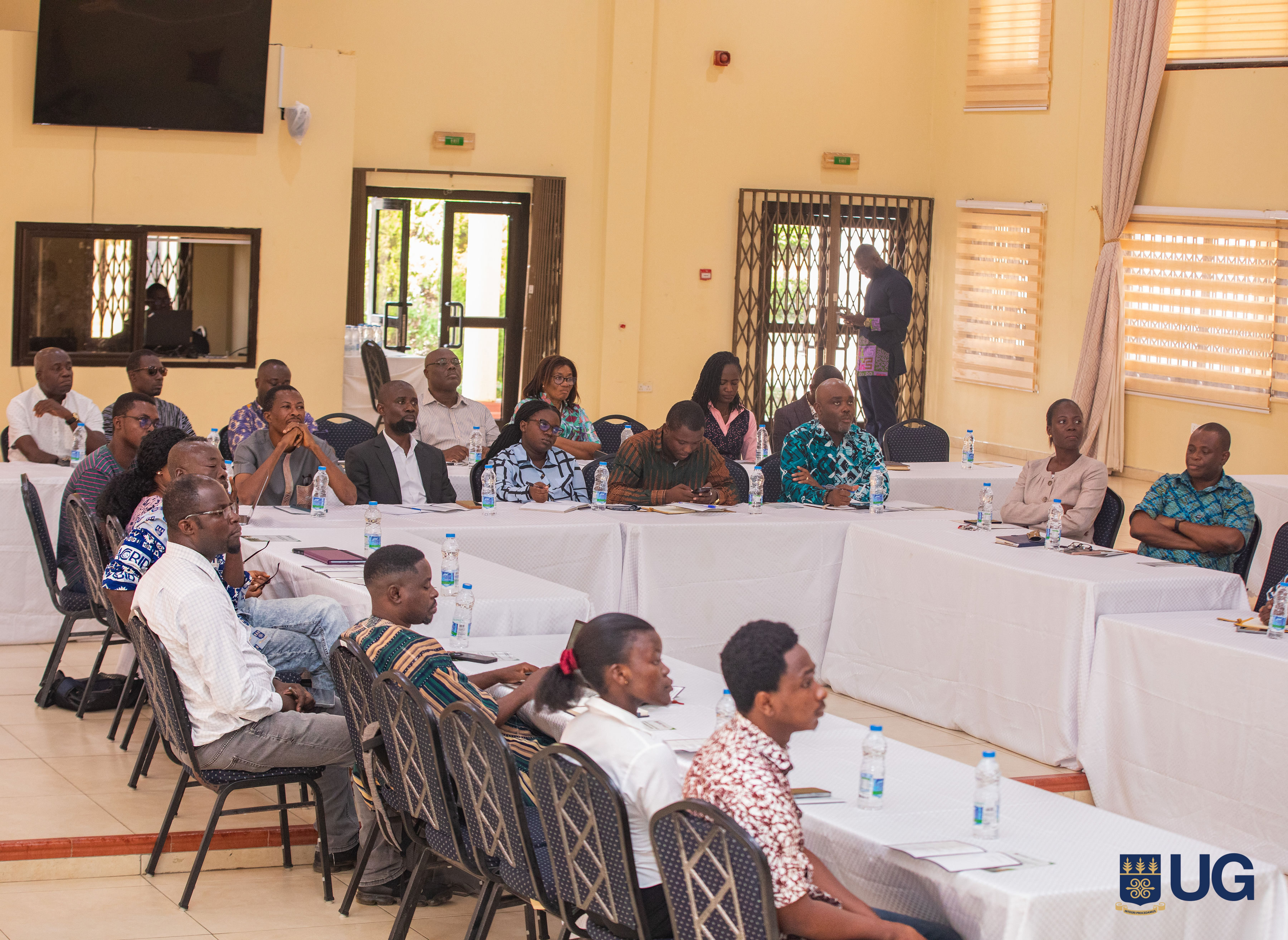
A cross-section of participants
The seminar, themed “Advancing Agrivoltaics for Sustainable Development: Innovations in Food Security, Renewable Energy, and Climate Adaptation,” brought together scientists, educators, policymakers and development partners to explore the promise of Agrivoltaics, an emerging technology that allows for the simultaneous use of land for solar power generation and crop cultivation, could help address Ghana’s interlinked challenges of food insecurity, climate change and renewable energy adoption.
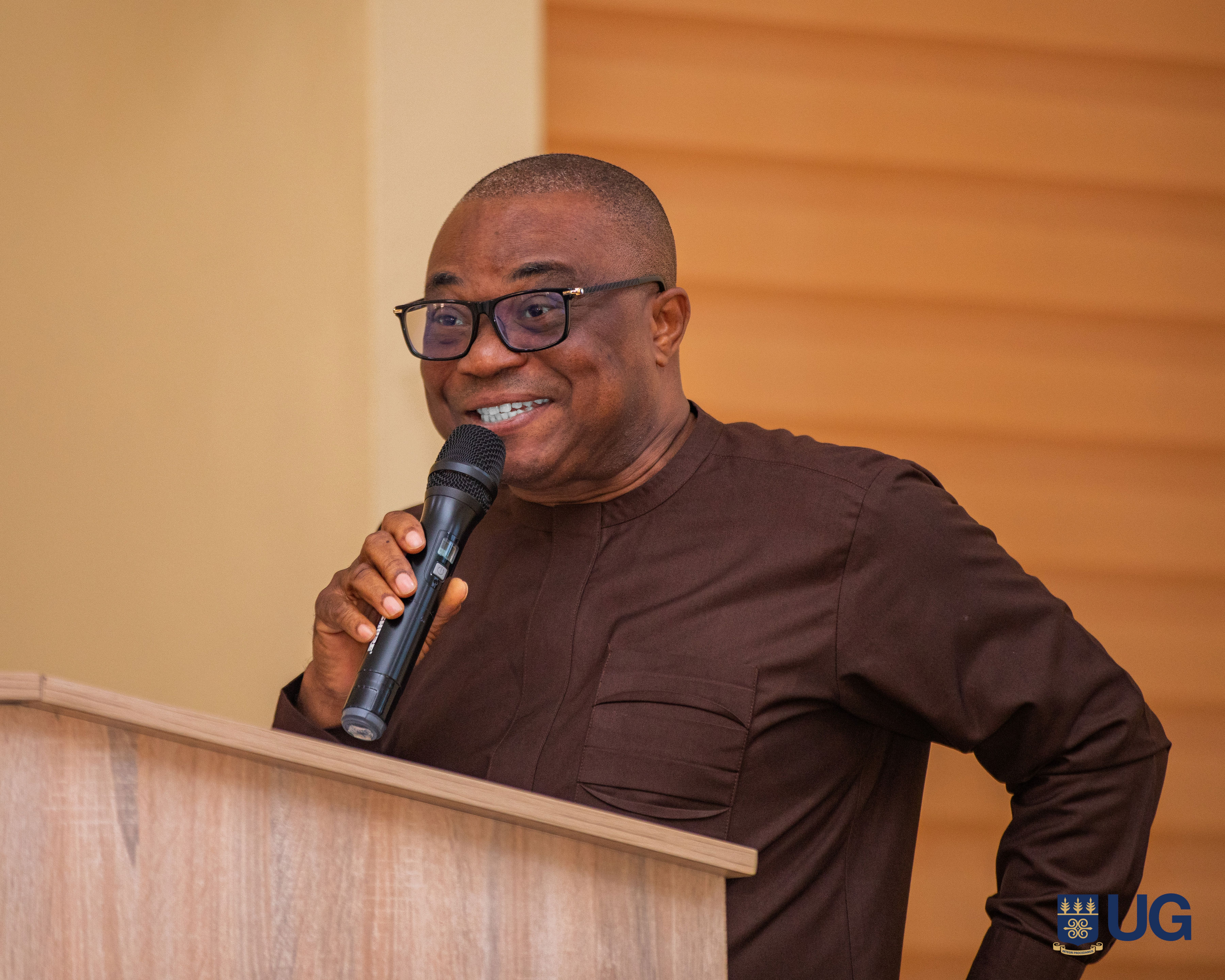
Professor Gordon Senanu Kwame Adika
Delivering remarks on behalf of the Provost of the College of Education, Professor Gordon Senanu Kwame Adika, Dean of the School of Education and Leadership, lauded the initiative as a groundbreaking step toward a more sustainable future. “It’s a unique and exciting step in our journey towards sustainability, one that bridges the worlds of agriculture, energy and climate science,” he stated.
Referencing an earlier metaphor shared by Professor Chad Higgins of Oregon State University, Professor Adika remarked that “plants get tired.” Explaining the metaphor, Prof. Adika said too much sunlight can actually stress plants, making them less productive and more dependent on water. Agrivoltaics, he explained, addresses this by providing a mix of sunlight and shade through elevated solar panels, reducing plant stress, conserving water, and simultaneously generating clean energy. “It’s a brilliant convergence of food and energy systems,” he added.
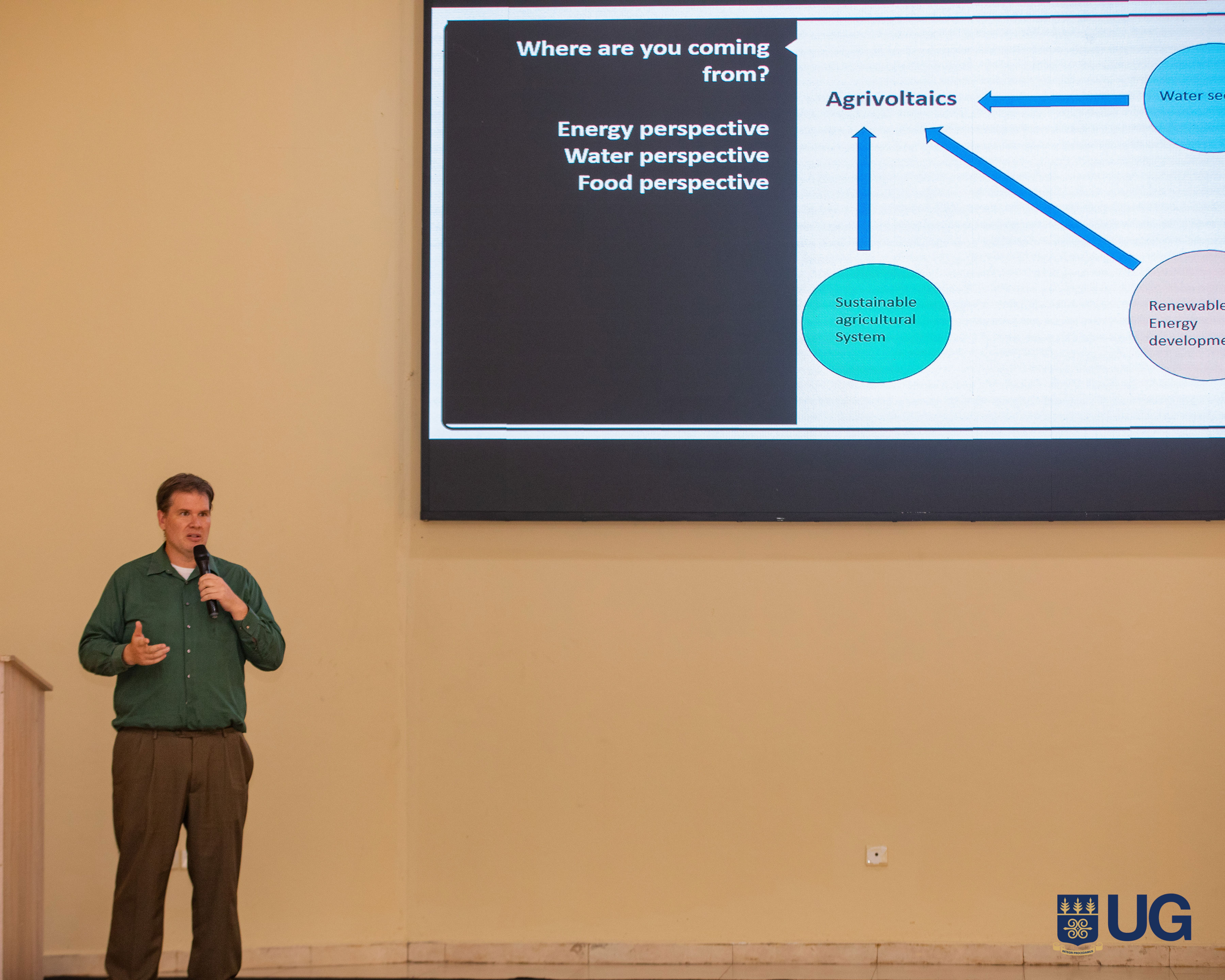
Professor Chad Higgins
Delving into the technical foundations of the concept, Professor Chad Higgins offered an insightful presentation on what he described as the “energy-water-food nexus.” He explained that agriculture consumes nearly 87% of the world’s freshwater supply, much of which isn’t even used for plant growth but to cool plants under heat stress. “Agrivoltaics reduces this non-productive water loss,” he noted. “If we’re serious about water and food security, we need to give this a chance.”
Participants were shown a demonstration video illustrating how Agrivoltaic systems can improve photosynthesis, increase crop yields and cut down on water use. For many attendees, it was an eye-opener.
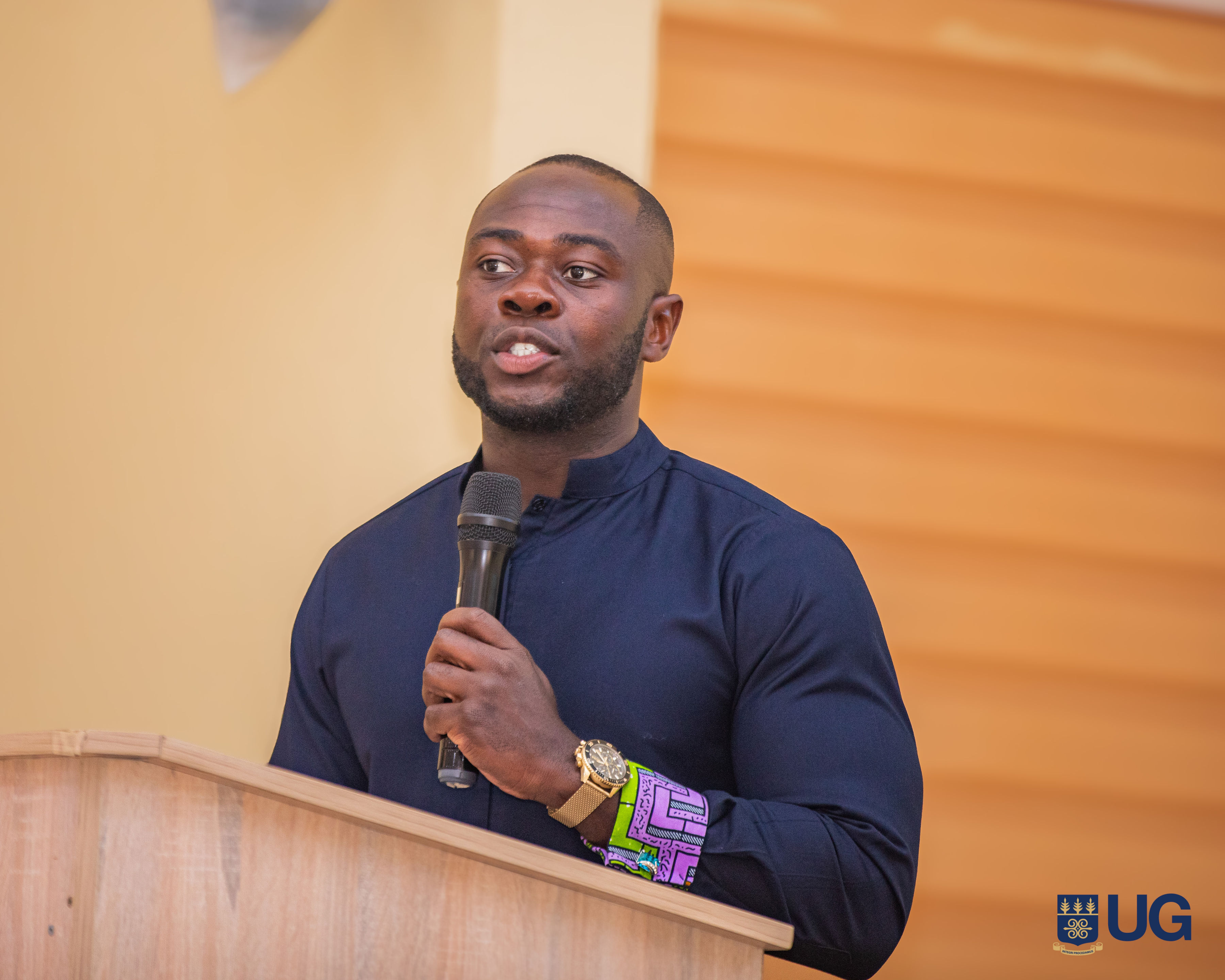
Mr. Patrick Dapaa Kwao
Mr. Patrick Dapaa Kwao, a Ghanaian PhD student at Oregon State University and a member of the Agrivoltaics research team, highlighted Ghana’s leadership on the continent in exploring the technology. “Aside Kenya, Ghana is one of the first African countries exploring this technology. Countries like the United States, France, Germany and Japan are already reaping the benefits. Ghana must not be left behind,” he urged.
The seminar also acknowledged the invaluable contributions of several research centres and academic units beyond the College of Education and its constituent schools at the University of Ghana. Among those recognised were the School of Agriculture, the West African Centre for Crop Improvement, the Soil and Irrigation Research Centre, and the Forest and Horticultural Crops Research Centre. Climate-focused institutes, including the Institute for Environment and Sanitation Studies and the Centre for Climate Change and Sustainability Studies, were likewise commended for their strategic roles in advancing the interdisciplinary agenda.
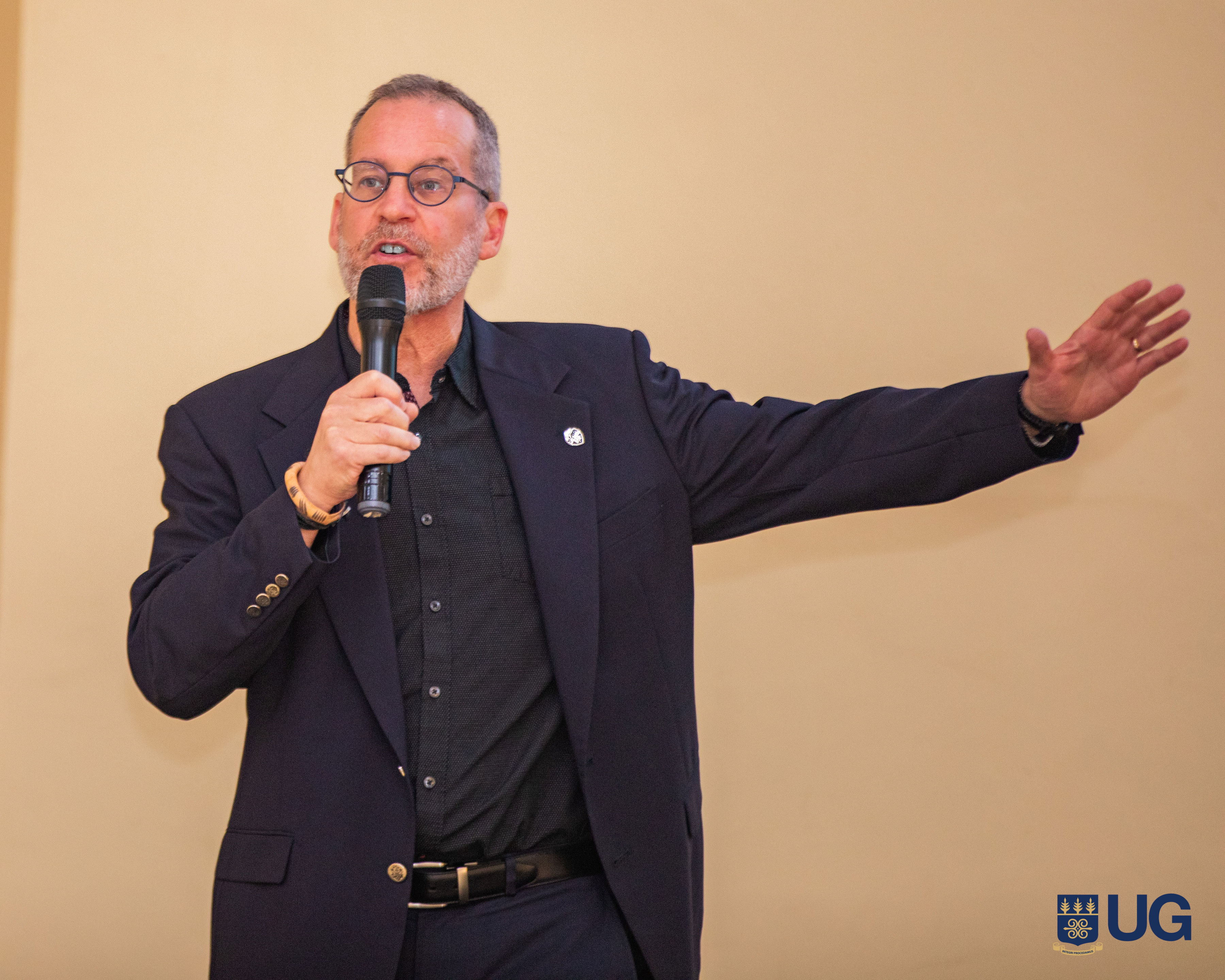
Professor David Bernell
Bringing a policy perspective to the discourse, Professor David Bernell, a former adviser on natural resources in the administration of U.S. President Bill Clinton, called for a transformative approach to energy development. Drawing parallels with the rapid evolution of mobile phones, he stressed the need for equally smart and accessible energy technologies. “We need energy solutions that are as smart and accessible as smartphones,” he said. He further emphasised the importance of inclusive energy policies: “If farmers and local people don’t see themselves in these projects, the systems will fail.”
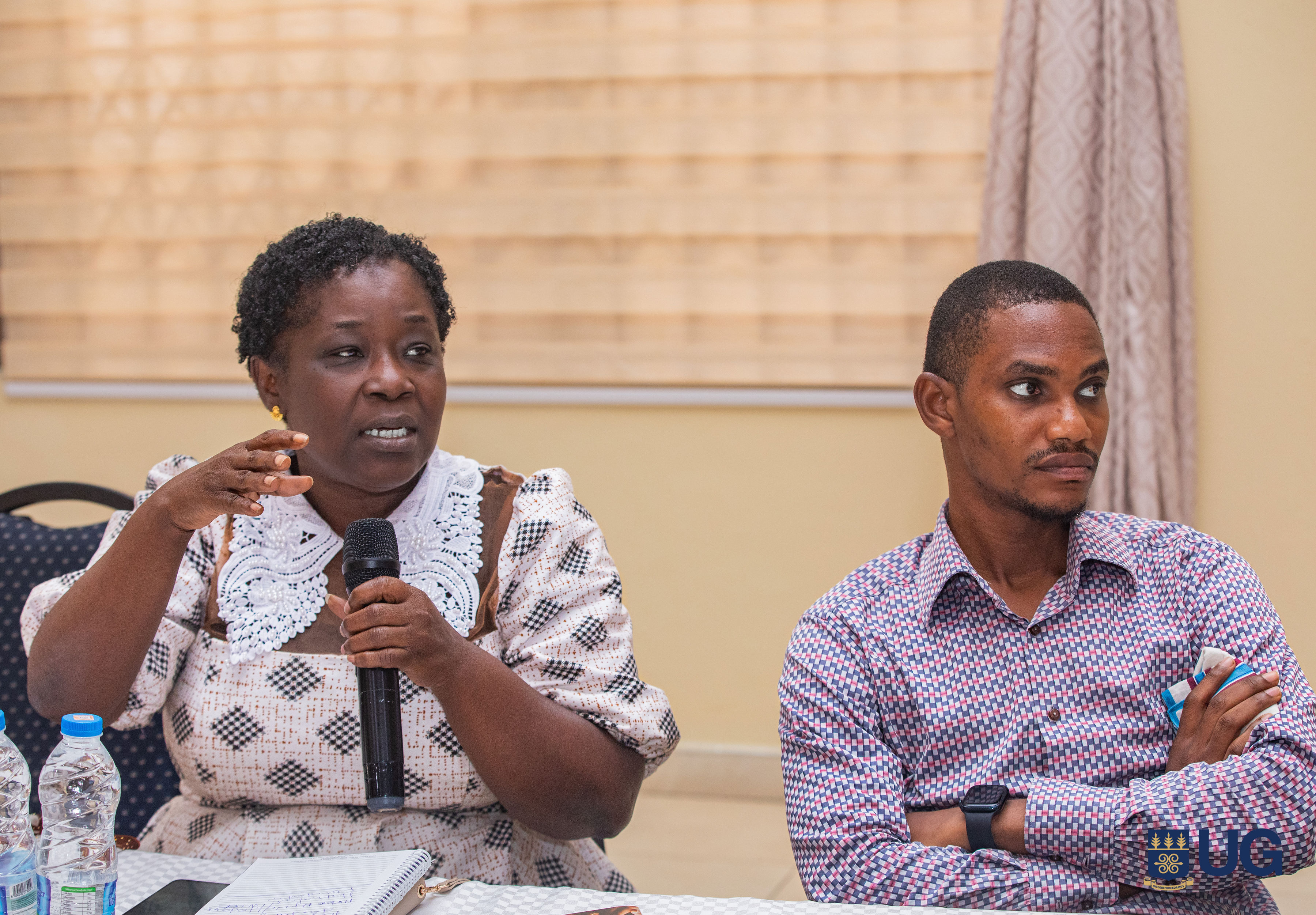
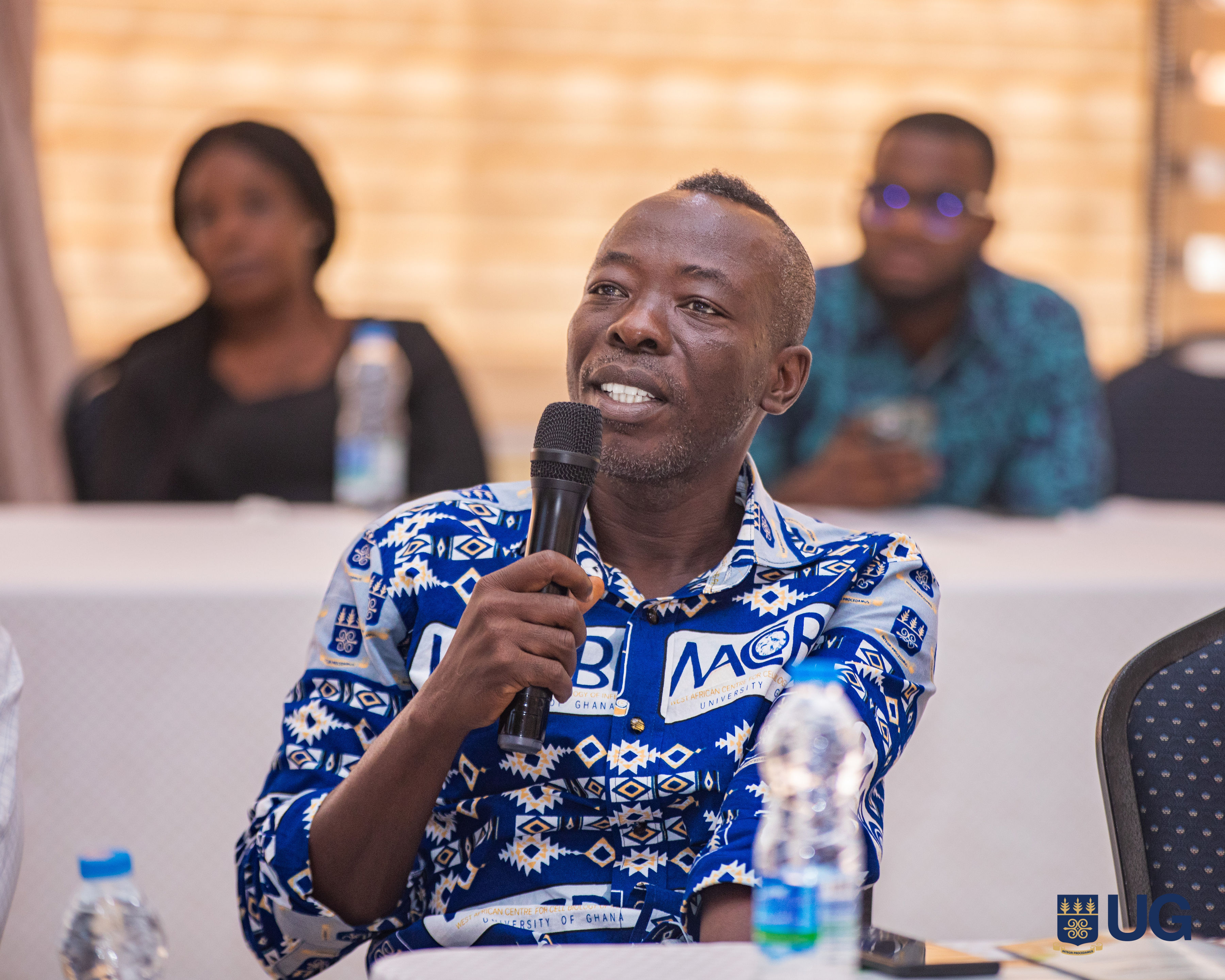
Concerns raised during the open forum included the environmental impact of discarded solar panels. In response, Professor Higgins cited successful U.S. recycling models that recover valuable metals such as copper and silver through efficient density separation technologies.
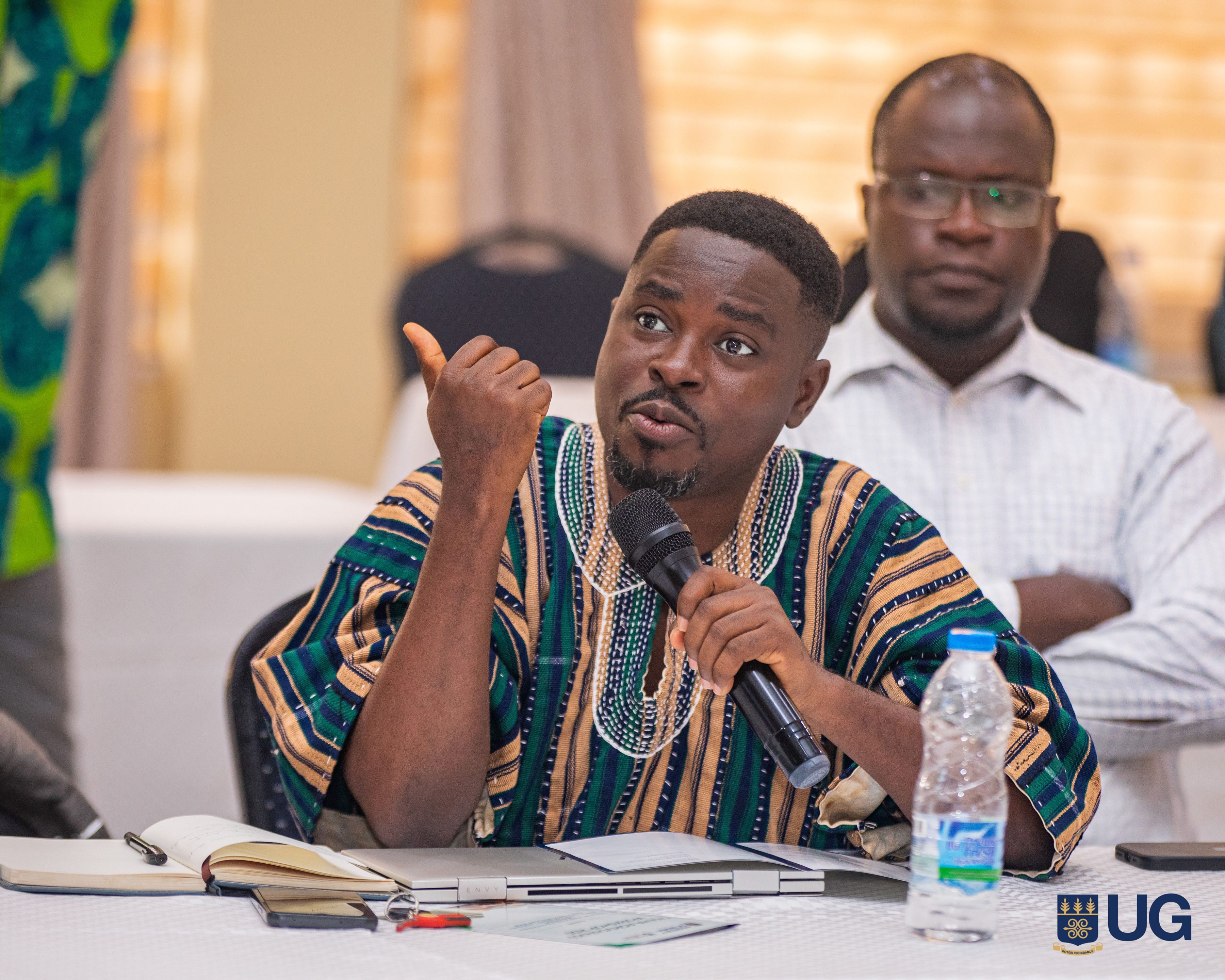
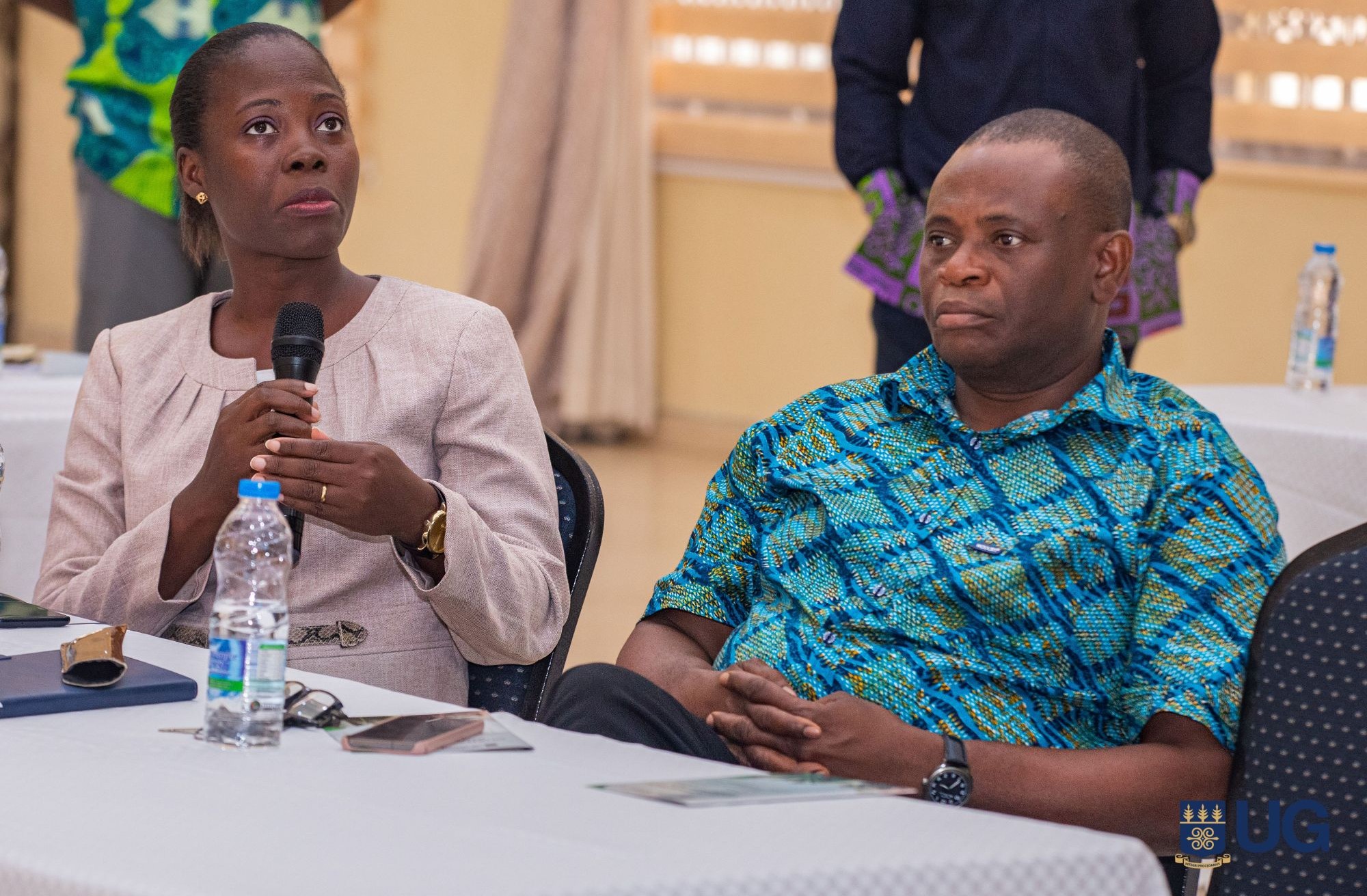
On implementation costs, Professor Bernell explained that while a 1-acre Agrivoltaic system might cost about $250,000 in the United States, the projected cost in Ghana could range between $40,000 and $60,000. Professor Higgins added: “This isn’t out of reach. With the right partners and a shared vision, Ghana can lead the way in West Africa.”
Professor Higgins concluded by outlining a four-phase roadmap for deploying Agrivoltaics in Ghana: visioning and feasibility, implementation, execution and knowledge transfer. “We start by building a shared vision,” he said. “Then we build, we learn and we scale the system across Ghana and West Africa.”
As the seminar drew to a close, participants expressed confidence in Ghana’s potential to become a regional hub for Agrivoltaics innovation, leading sustainable agricultural transformation across Africa.
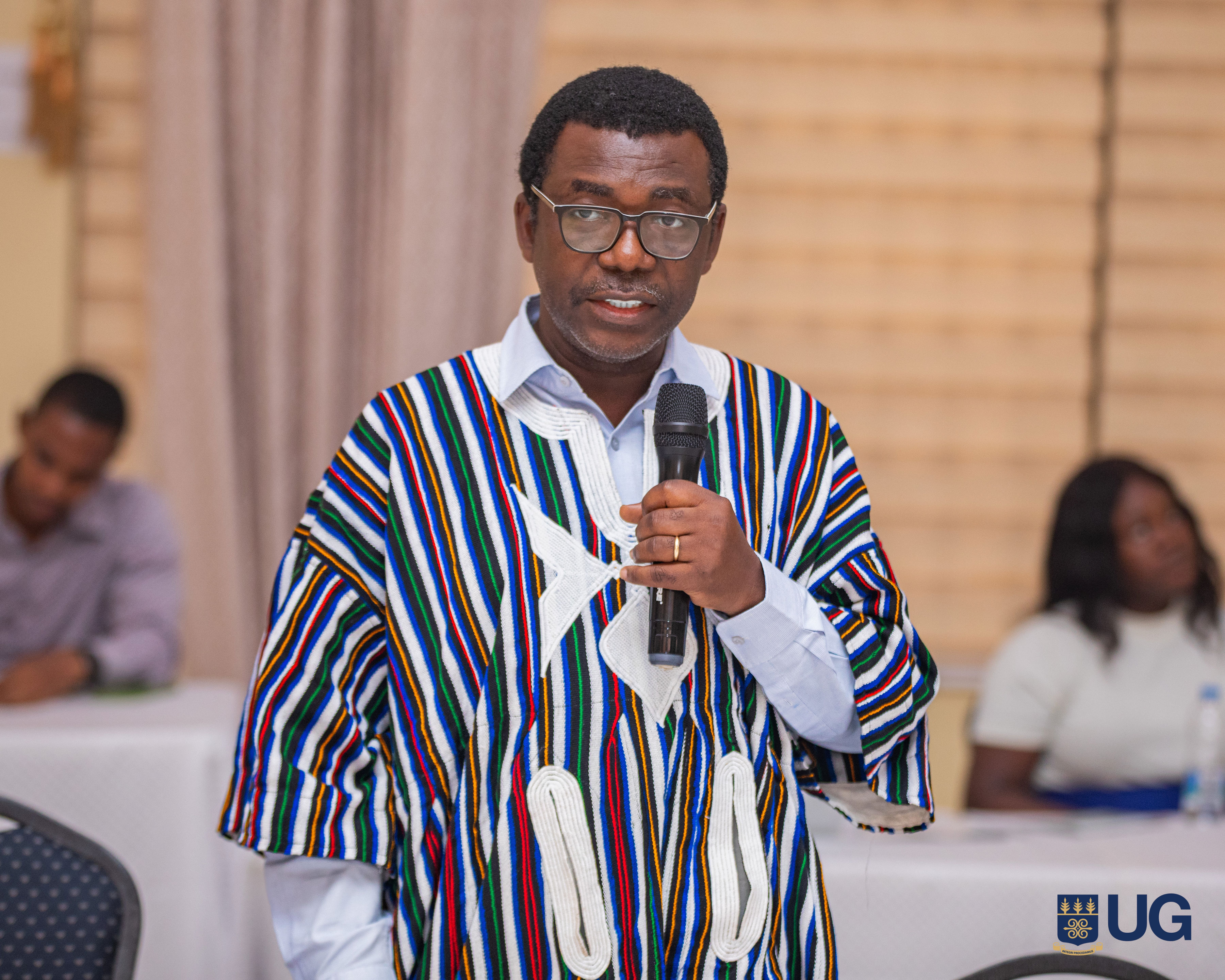
Mr. Joseph Oduro Nkansah
In his closing remarks, Mr. Joseph Oduro Nkansah, College Registrar, thanked the researchers from Oregon State University for their partnership and acknowledged all participants for their valuable contributions.
More than just a seminar, the event marked the beginning of a transformative journey, one that could reshape how Ghana produces food, conserves water and generates clean energy. With visionary leadership and strong cross-sector collaboration, Ghana is well positioned to emerge as a continental leader in sustainable agricultural innovation.
